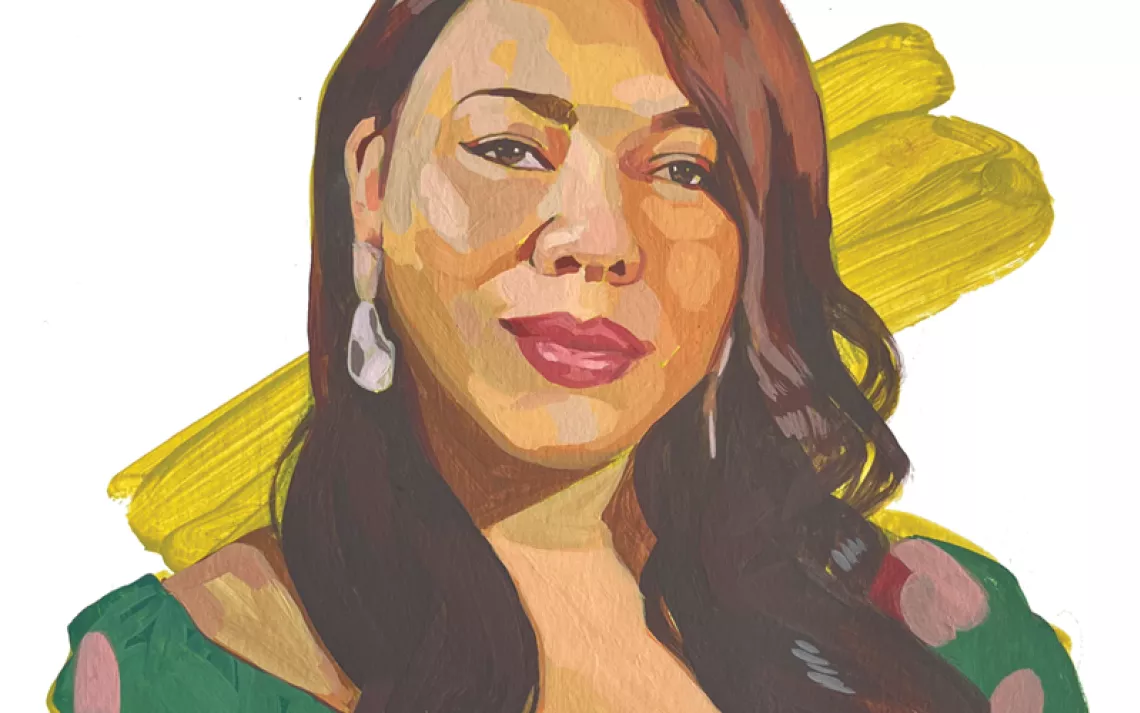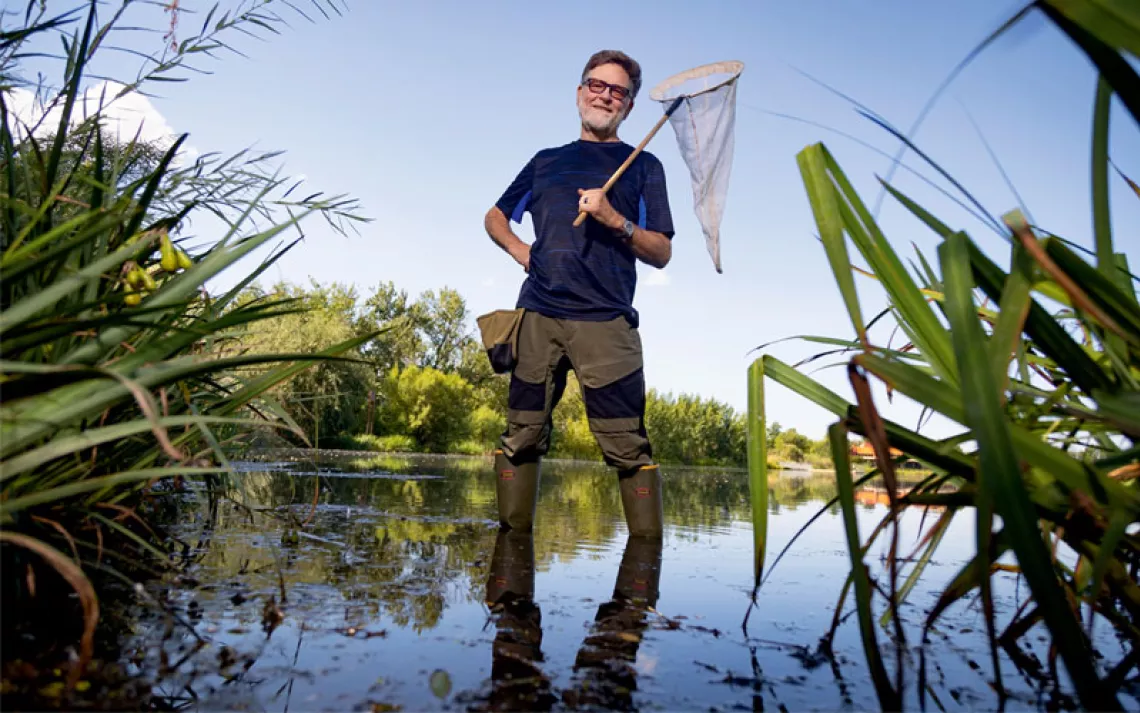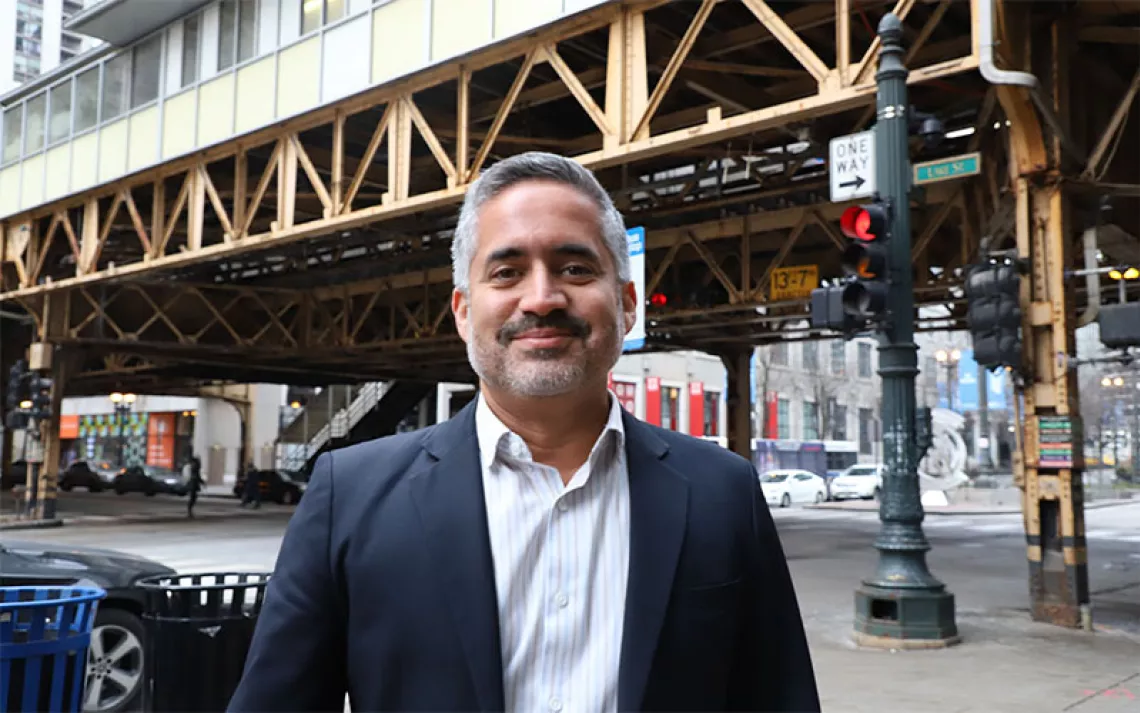What It's Like to Be an Environmental Defender in the Congo
Goldman Prize recipient Rodrigue Katembo tells of his job’s perils
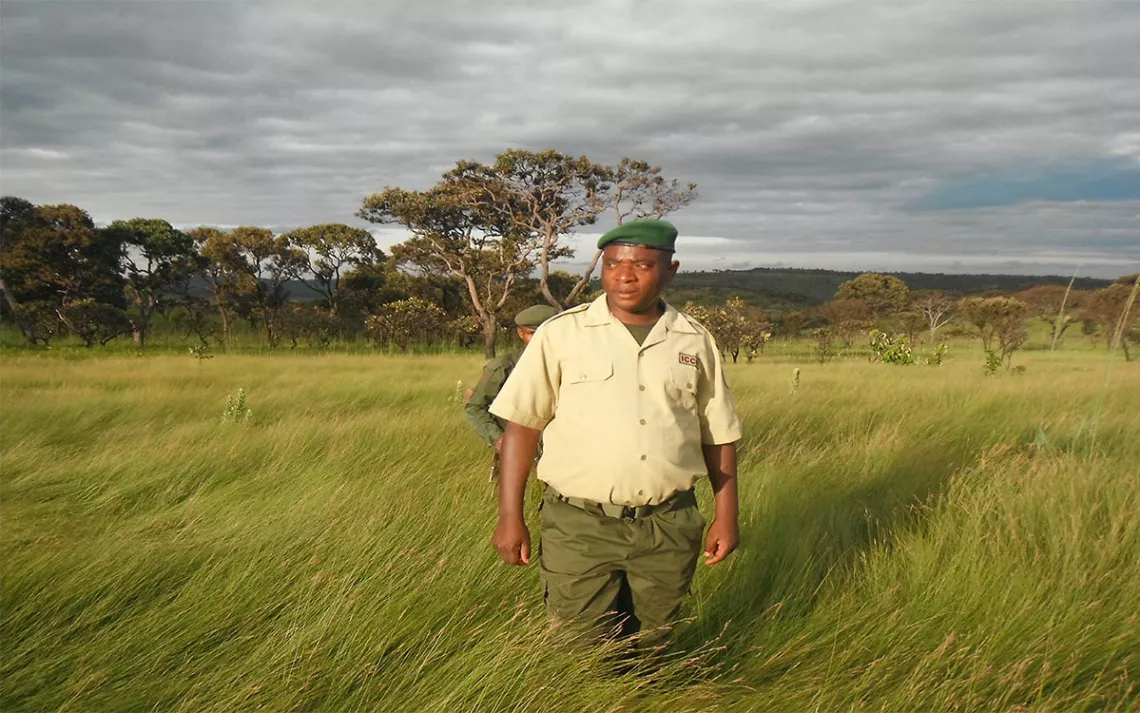
Photos courtesy of Rodrigue Katembo
Park ranger Rodrigue Katembo had lost count of how many times he’d been whipped, but he knew it would be a while until they reached 100—the number of lashes ordered by the Congolese army colonel in charge of his arrest. Katembo’s team of park rangers was forced to watch as he was tied to a tree and writhed beneath the lash.
This is a glimpse of what it’s like to be an outspoken environmentalist in the Democratic Republic of Congo (DRC). In 2013, Katembo had protested when the British oil company SOCO International began exploring for oil in Virunga National Park—a UNESCO heritage site known for its endangered mountain gorillas. SOCO had alerted local authorities of Katembo’s stance. It was his 10th year as a park ranger, having started with the elephant protection program at Virunga’s Kabaraza station.
“Their approach was to show the rangers that SOCO is very strong, so we will not dare to oppose the exploitation of oil in Virunga,” Katembo told Sierra in a recent interview. He had pretended to accept a bribe from SOCO in order to secretly film the company’s illegal operations. Later, he barred its workers from certain areas in the park, which eventually led to his arrest. After 17 days, during which he said he was burned with cigarettes, beaten, tied up, carted around and later imprisoned, Katembo was released.
Katembo says the soldiers had received orders to kill him, but one of the National Intelligence Agency officials mercifully objected. “God is good,” Katembo said, recounting his near-death experience. Although SOCO later abandoned its project, the harassment continued, forcing Katembo to transfer to Upemba National Park.
There he promptly angered another corporation that was trying to install a hydroelectric power station on the Lufira River. “At first, Kipay Investment tried to bribe me. Then the company paid the military to kill me,” Katembo said. He now lives away from his family, out of fear that they will be harmed if he stays with them. But he continues to plan anti-mining protests to protect Upemba’s natural resources and runs anti-poaching operations to keep poachers away from leopards and the Katanga impala that live only in the area.
It takes courage to be an environmentalist in the Congo, and it’s not something one can do alone. “You need to be united, learn to trust the right people when the whole system has broken down after years of conflict,” said Tina Lain, an environmental expert at the International Union for Conservation of Nature (IUCN). “Be satisfied with small wins . . . and make more enemies than friends.”
The routine repression of environmental protectors in the DRC is all too common. In data collected by Global Witness, the DRC has been named one of the deadliest countries in the world to be an environmentalist. That danger is all too real for activists all over the world, including in Honduras, Brazil, the Philippines, and India. Just this month, six park rangers and one driver were ambushed and shot to death in Virunga National Park, bringing the total number of murdered Virunga park rangers in the last 15 years to 175. “These militias wouldn’t act alone. [I’m sure] senior officials at Goma or Kinshasa provided direct or indirect support for the militia to operate in complete freedom in Virunga,” Katembo said.
Katembo manages a team of rangers, and each day, divides between them various parts of the park with endangered wildlife and plants for their daily patrol before heading out with them to designated posts. “This is the most wonderful [kind of] day to me,” said the ranger. But this is also where things can get ugly.
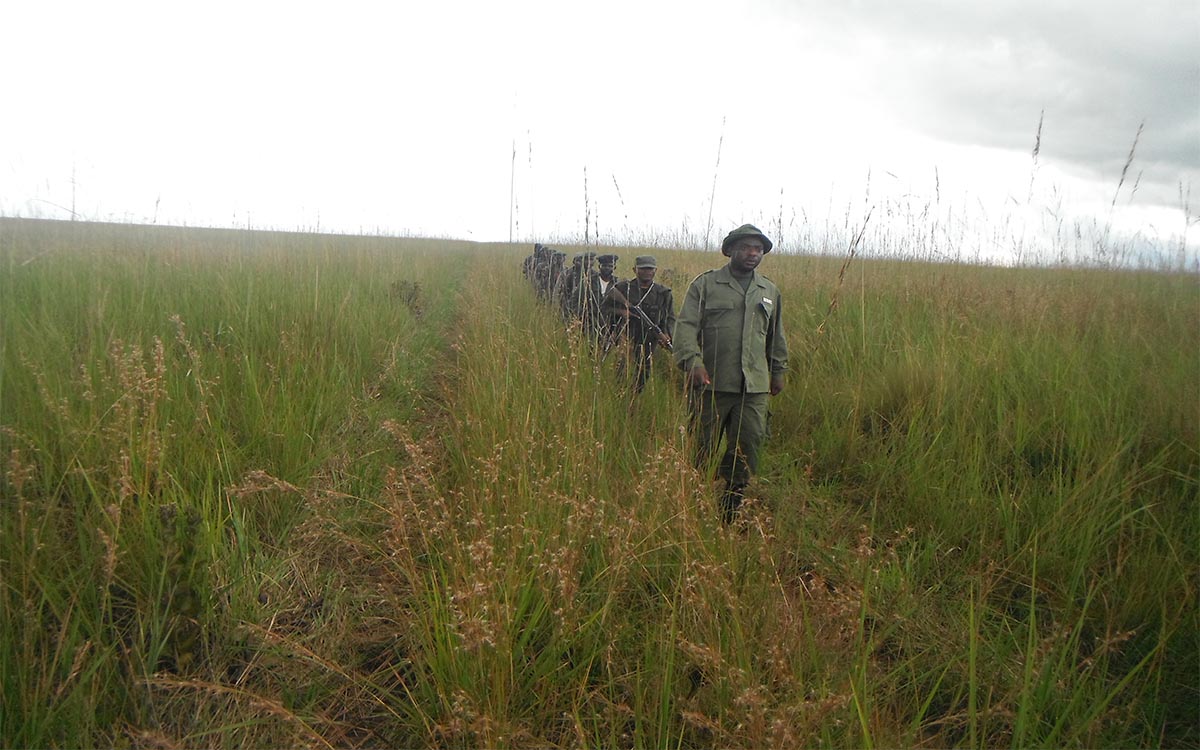
“I receive death threats regularly, from unknown callers and well-known people,” said Katembo. “They do not hesitate to name themselves.”
Many organizations work to protect park rangers and local villagers who clash with energy companies over natural resources, and in more than one case they've had to relocate these people because of the death threats they were getting. “We’ve had to evacuate many of them, increase security at their homes, develop security contingency plans, also evacuate their families,” said Lain.
IUCN worked with Katembo and his rangers to protest oil extraction in Virunga and has also tried to direct international attention to the dangers that local activists face every day and how demanding their jobs are. “To be an environmentalist in the Congo, you need to be so many different persons: You need to be an educator, an activist, a diplomat, a lawyer, a law enforcement agent, a community leader, and a role model,” Lain said.
While Virunga National Park’s ranger death count is currently at 175 since 2003, Katembo claims that those figures are incomplete; nationwide, he says, at least 60 park rangers are killed every year during patrol missions in DRC’s national parks. Often, the attackers target high-profile rangers like Upemba National Park’s then chief warden Atamato Madrandele, who was shot to death on his motorbike in 2012, and Virunga’s chief warden Emmanuel de Merode, who as shot in the stomach and legs on a drive but survived the ambush.
“The people that are trying to stop [the rangers] are the same people who are benefiting from the illegal extraction and trafficking of DRC’s oil, wildlife, minerals,” Lain said.
“Anything could happen to me at any moment . . . injuries that will disable me, lifelong imprisonment, or death,” Katembo said. But in spite of the fear, he is determined to be a park ranger for as long as he is able to. “I am fighting to maintain a space [that upholds] the biodiversity Africa has to offer.”
For decades, the Congo’s park rangers have been on the front lines of an uphill battle against a corrupt government and military, targeted by armed attackers and private militias—and the rangers are outnumbered 10 to one. “It is unacceptable that Virunga’s rangers continue to pay the highest price in defense of our common heritage,” said de Merode after last week’s ranger attack.
Katembo thinks there is still hope. For one, local villagers have been eager to fight against oil exploitation and other environmental issues and have played an important role in the rangers’ plans to turn away energy companies. “But there is still a problem when it comes to funding these civilian campaigns, especially because of the scope of what we have to defend,” said Katembo. There is a strong group of individuals in North Kivu who are organized in environmental activism, but other regions still lack structure and the financial means to keep the activism going—another 25 provinces in the DRC will need structured organizations to keep civilians united.
After the murders in his beloved Virunga National Park, Katembo remains undeterred. “The right to a healthy environment is a human right,” the park ranger said.
This article has been updated since publication.
 The Magazine of The Sierra Club
The Magazine of The Sierra Club
